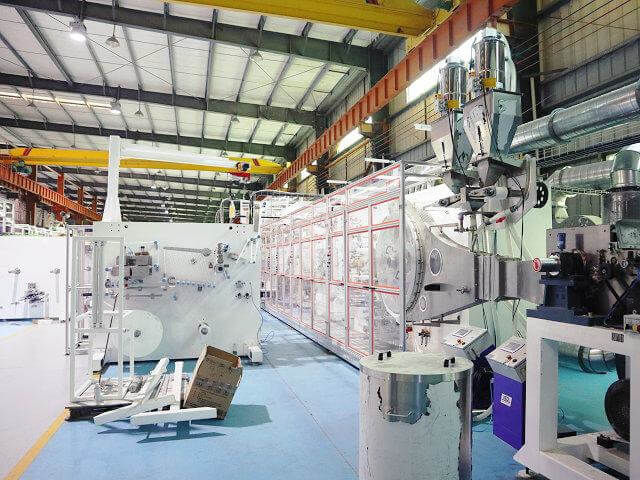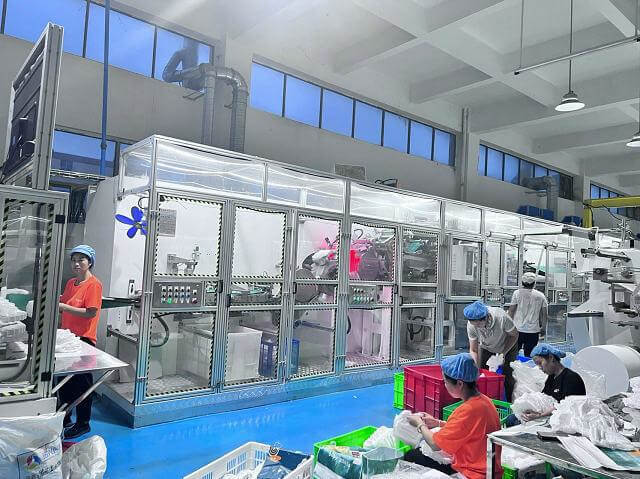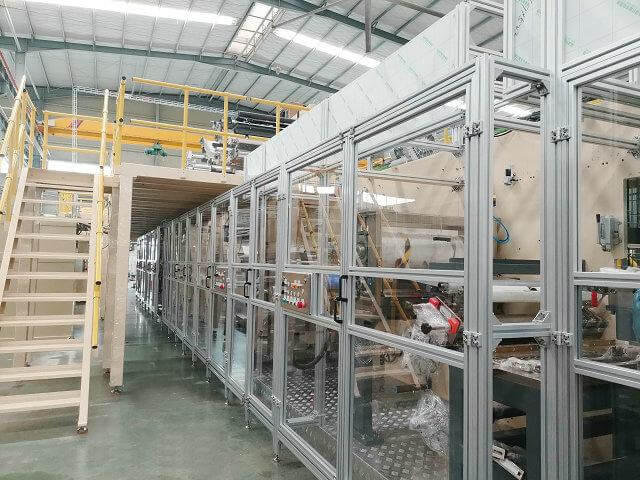Author:Haina Machinery Factory FROM:Diaper Machinery Manufacturer TIME:2023-11-27
The baby diaper making machine is an essential piece of equipment for producing diapers in a large-scale production setting. It automates the process of cutting, shaping, and assembling the various components of a diaper, resulting in a high-quality product. In this article, we will provide a step-by-step guide on how to operate a baby diaper making machine, ensuring optimal efficiency and productivity.

Before operating the baby diaper making machine, it is crucial to ensure that all necessary preparations have been made. Start by thoroughly cleaning the machine and inspecting it for any damage or wear. Next, gather all the required materials, such as absorbent core, leg cuffs, and waistbands, and arrange them in an organized manner for easy access during production.

Each diaper style may require specific machine parameters, such as cutting length, folding angles, and elastic tension. Refer to the product specifications provided by the manufacturer and input the necessary settings into the machine's control panel. It is essential to double-check the accuracy of these parameters to ensure consistent and precise diaper production.

Load the rolls or stacks of raw materials onto the feeding stations of the machine. These materials typically include nonwoven fabric, SAP (superabsorbent polymer), and elastic bands. Make sure that the material rolls are aligned correctly and securely attached to their respective holders to prevent any misfeeds or disruptions during the production process.
Once everything is set up and the raw materials are loaded, start the machine according to the manufacturer's instructions. The machine will begin the automatic process of unwinding, cutting, and assembling the various components of the diaper. Monitor the machine closely during the initial run to ensure that it is operating smoothly and that the diapers are being correctly formed.
To maintain optimal performance, it is important to conduct regular maintenance checks on the baby diaper making machine. This includes cleaning the machine after each production run, checking and replacing any worn-out or damaged parts, and applying lubrication where necessary. Regular maintenance minimizes the risk of breakdowns and prolongs the lifespan of the machine.
To ensure the production of high-quality diapers, implement strict quality control measures. Regularly inspect the finished diapers for defects such as uneven cutting, improper folding, or weak adhesion. Conduct absorbency tests to verify the effectiveness of the absorbent core. Any faulty diapers should be removed from the production line immediately to maintain product integrity.
Inevitably, issues may arise during the operation of a baby diaper making machine. It is crucial to understand common problems and their solutions to minimize downtime. Create a troubleshooting guide for operators, outlining step-by-step procedures for addressing issues such as material jams, misfeeds, or machine malfunctions. Regularly review and update this guide based on the experiences and feedback of operators.
Lastly, strive for continuous improvement in the diaper manufacturing process. Encourage feedback from operators and production staff to identify areas of improvement and implement solutions. Explore new technologies and advancements in the industry to optimize productivity, reduce waste, and enhance the overall quality of the diapers produced.
The operation of a baby diaper making machine requires careful preparation, attention to detail, and ongoing maintenance. By following the steps outlined in this guide, you can ensure efficient production and achieve consistent high-quality diapers. Remember to prioritize regular maintenance, quality control measures, troubleshooting procedures, and continuous improvement to maximize the machine's performance and meet market demands.
